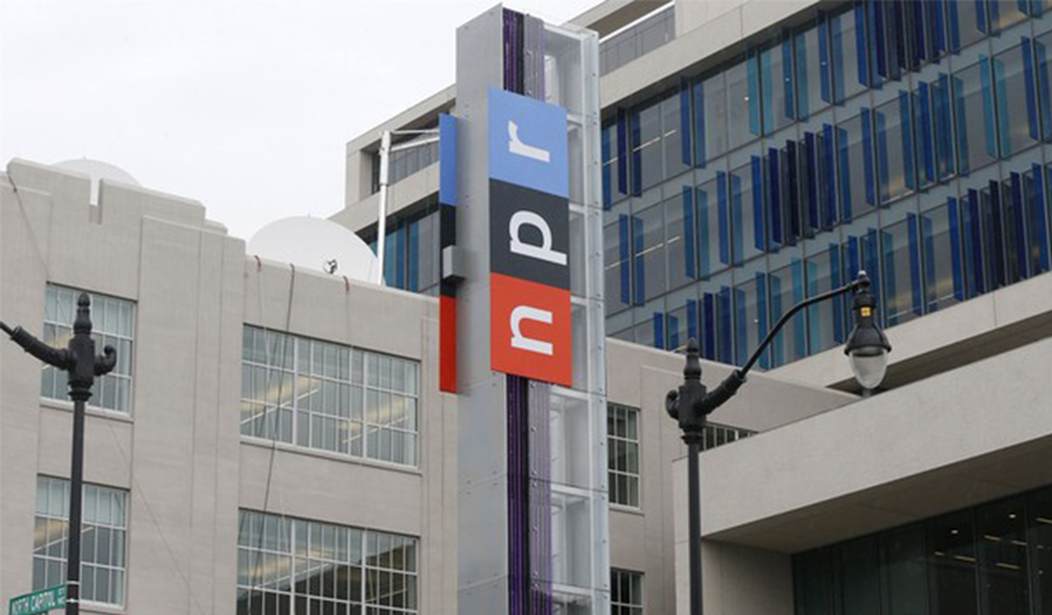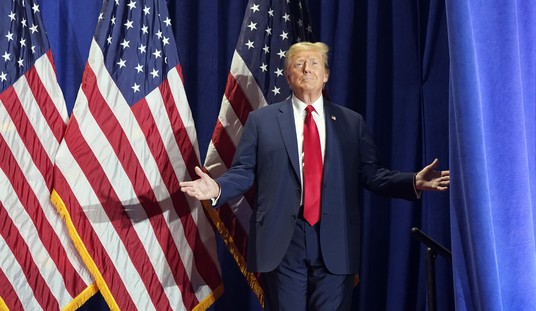In some ways, the Trump era has led to a golden age of journalism, but in far too many, it has created a perverse incentive structure that has emboldened the far-left activists who are steadily taking over America’s already-hollowing newsrooms — whose salaries are, in some cases, paid for by taxpayers across the political spectrum.
Following a bombshell exposé of National Public Radio’s (NPR) internal left-wing biases by a longtime senior executive who claimed that the publicly-funded network “lost America's trust” by appealing to an audience shrinking in both numbers and viewpoints, the company seemed hell-bent on proving critics right by suspending Uri Berliner after his confessional essay set the insular journalism world on fire.
However, Berliner took the ball in his own court and took a “you can’t fire me, I quit” approach, resigning from NPR, telling the outlet to pound sand while simultaneously opposing calls to defund it. “I cannot work in a newsroom where I am disparaged by a new CEO whose divisive views confirm the very problems at NPR I cite in my Free Press essay,” he wrote.
While the saga goes well beyond just Berliner, whose analysis that NPR had 87 registered Democrats and zero registered Republicans at its Washington, D.C. headquarters sent shockwaves in his office and in other outlets, it underscores the overt rejection that far too many outlets have displayed in the Trump era of any dissenting voices.
NBC News infamously brought on Ronna McDaniel, the former chairwoman of the Republican National Committee (RNC) as a political contributor, only to have her not even last a full Scaramucci in that role, due to an internal rebellion — in which purported straight news journalists, like Chuck Todd, moaned to Kristen Welker, another alleged news reporter, about how “our bosses owe you an apology for putting you in this situation.” You’d think that Welker had just sat down with Genghis Khan — but many of her colleagues seemed to have genuinely believed that.
Recommended
Creeping groupthink has taken over many of the outlets with outsize importance in driving the national conversation. In 2021, Politico featured a rotating cast of authors of its once-dominant Playbook newsletter; at one point, the Beltway gossip blog dared to feature the conservative commentator Ben Shapiro as one of its authors. Chaos ensued, in and outside its then-mostly empty office.
“It’s not just that he’s incendiary or conservative,” one reporter said at the time. “It’s that he sells falsehoods as an incendiary persona.” Never mind that Politico played an instrumental role in publishing actual falsehoods on how “Hunter Biden story is Russian disinfo, dozens of former intel officials say.” Has Politico updated that story to reflect that everyone outside of the fever swamps of BlueAnon Twitter and Congressman Dan Goldman understands that Hunter Biden’s laptop in fact belonged to Hunter Biden? Of course not.
Beyond Politico, the Grey Lady infamously published an oped by Senator Tom Cotton in which he argued for Donald Trump to “send in the troops” in response to chaos in the streets — advice that seems sage once more with pro-Palestinian terrorist activists hijacking roads in progressive enclaves. This was always ironic, especially given the legitimate fake news peddled by the New York Times’s disgraced Walter Duranty, who seemed to have never met a Soviet atrocity he wouldn’t gloss over.
Just months before Cotton’s infamous oped — which a group of Times staff breathlessly claimed “puts Black @nytimes staff in danger” — the outlet published an oped from one of the FBI’s most wanted terrorists, Sirajuddin Haqqani, about “what we, the Taliban, want.” But Cotton arguing for law and order in America’s streets was a bridge too far.
Never mind that Haqqani, who is now a senior official in the Taliban’s government which brought back stoning women, “is believed to have coordinated and participated in cross-border attacks against United States and coalition forces in Afghanistan.” For the New York Times, platforming the Taliban, whose law and order makes Mad Max look like a civilized world, is perfect, but platforming Tom Cotton is a bridge too far.
What, therefore, makes NPR the target of such renewed ire? Its fairly unique status in American media as being partially taxpayer-funded. One longtime public radio executive told me that this helps explain some of its craziest leftwing tendencies, like its infamous “In Defense Of Looting” piece, published around the height of the 2020 Summer of Love. “By the time Morning Edition is done, more than half of the audience of most public radio stations is done tuning in for the day,” he noted.
After 9am, its “prime audience” is gone across all listening areas, so it complements its popular programming, like Morning Edition, with pieces that are clickbait and unabashedly left-wing — to keep private dollars flowing.
This taxpayer funding of progressive pablum does not even stop at the water’s edge. While Voice of America (VOA) is also taxpayer-funded, it contravened the policies of the U.S. government in its coverage of Hamas, instructing its reporters to “avoid calling Hamas and its members terrorists, except in quotes” because it would “demonize” the U.S.-designated terrorist group. It wasn’t until bicameral scrutiny, from Congressman Darrell Issa and Senator Bill Hagerty, put the screws to the agency, that it reversed course.
Does anyone really think that Pravda would have ever defied Moscow’s orders? Or that TikTok’s parent company would turn down orders from Beijing? Of course not. Yet at home, with NPR, and abroad, with VOA, American taxpayers are footing the bill for outlets whose coverage is far too often indistinguishable from that of The New Worker.
What we all need is a little less groupthink and a little more ich bin ein Uri Berliner.

























Join the conversation as a VIP Member